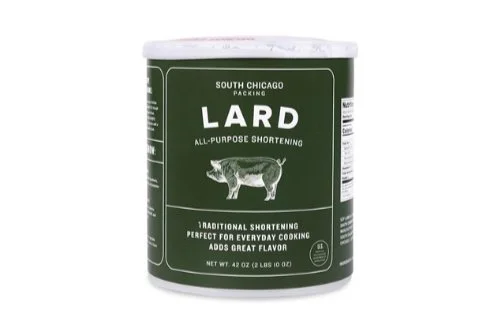How to Determine the Right Amount of Protein for Optimal Health on the Carnivore Diet
When adopting a carnivore diet, the focus is on consuming animal-based foods exclusively, which naturally leads to a high intake of protein and fats. Determining the right amount of protein is critical not only for maintaining lean muscle mass but also for ensuring overall health while adhering to this dietary regimen. The carnivore diet excludes carbohydrates and fiber, positioning protein and fats as the primary sources of energy. Therefore, individuals must pay close attention to their intake to ensure they are getting essential nutrients within these constraints.
The ratio of fat to protein is a significant consideration on the carnivore diet, as it can affect everything from satiety to energy levels. While fat is a dense energy source, providing 9 calories per gram, protein offers 4 calories per gram and is essential for bodily functions, including the repair and growth of tissues. It is generally recommended that individuals on a carnivore diet aim for a fat to protein gram ratio of approximately 1.5:1, which helps to maintain a ketogenic state, where the body uses fat instead of glucose for energy. This ratio strikes a balance between providing adequate protein for the body's needs while harnessing the energy from fats.
To tailor the carnivore diet to individual goals, whether that is weight maintenance, loss, or gain, one must adjust their protein and fat intake accordingly. For instance, those looking to build muscle or increase weight may consume a higher protein ratio, while weight loss might require a moderate protein intake to facilitate fat burn. It is universally important, however, to ensure that the sources of both protein and fat are nutrient-dense, supplying not just energy but also the essential amino acids and fatty acids that the body requires for optimal function.
Understanding the Carnivore Diet
This section provides a comprehensive overview of the carnivore diet, emphasizing its macronutrient composition and the unique consideration it requires regarding protein intake.
Defining the Carnivore Diet
The Carnivore Diet is an eating regimen that includes exclusively animal products, effectively eliminating carbohydrates. Individuals consuming this diet derive their energy primarily from fats and proteins found in meats. It's a restrictive diet that focuses on foods like beef, poultry, fish, and other forms of meat, as well as animal products such as eggs and certain dairy products.
Benefits and Challenges
The diet may offer benefits such as potential weight loss and a simplified approach to eating by removing food groups that require tracking, such as carbohydrates. However, there can be challenges, including ensuring a balanced intake of essential nutrients and adhering to a diet that can be socially restrictive.
Benefits:
Simplified meal planning
May improve satiation
Challenges:
Limited food variety
Potential nutrient deficiencies without careful planning
Carnivore Diet and Macronutrients
On the carnivore diet, macronutrient ratios are pivotal for balancing energy, supporting muscle growth, and achieving personal health goals. Protein intake is crucial and should be tailored to the individual's lean body mass and activity level. Fat intake also becomes a central energy source, often comprising a significant portion of daily calories.
Aim for a protein target based on lean body mass
Necessary for muscle repair and growth
Fat Intake:
Serves as the main energy source
Helps in achieving satiety
Macronutrient Ratios:
Goal: Weight Maintenance
Protein: Moderate
Fat: High
Goal: Muscle Growth
Protein: High
Fat: Moderate to High
Goal: Weight Loss (Fat reduction)
Protein: High
Fat: Moderate
In practice, the right amount of protein for an individual may vary, but a common approach is to consume between 1.0 to 1.2 grams of protein per pound of lean body mass, particularly if the goal includes muscle growth or maintenance. Fat ratio adjustments are based on caloric needs and satiety levels.
Protein Requirements
Determining the right amount of protein on the Carnivore Diet hinges on individual body composition, activity level, and health goals. Protein plays a pivotal role in building and repairing muscles, producing hormones and enzymes, and maintaining body tissues.
Importance of Protein
Protein is a fundamental macronutrient essential for the human body. It's the building block for muscle mass, critical in metabolic reactions, and necessary for the body's structural and functional purposes. Without a sufficient amount of protein, the body can't repair damaged tissues or create new cells efficiently.
Calculating Your Protein Needs
An individual's protein requirements are influenced by factors including body weight, age, gender, and level of physical activity. As a rule of thumb, a range of 1 gram to 1.2 grams of protein per pound of lean body mass is often recommended for those looking to maintain or increase muscle mass. Specific protein needs can be calculated using a calculator which considers goal weight and desired balance of macronutrients. For those on the Carnivore Diet, ensuring a balance of fat and protein is essential to meet energy and satiety needs without overconsuming protein.
Protein Sources in the Carnivore Diet
On a Carnivore Diet, protein sources are exclusively animal-based, providing a full spectrum of amino acids necessary for bodily functions:
Meat: Beef, pork, lamb
Poultry: Chicken, turkey, duck
Fish: Salmon, trout, mackerel
Organs: Liver, heart, kidney
It's important to select a variety of these sources to maintain a balance of nutrients while adhering to the diet's guidelines.
Fat Considerations
In the carnivore diet, fat is a crucial source of energy and nutrients. The appropriate fat-to-protein ratio and quality of fat consumed are essential for sustaining energy levels and overall health.
Role of Fat in the Diet
Dietary fat provides a dense source of energy and is vital for the absorption of fat-soluble vitamins. On a carnivore diet, which excludes carbohydrates, fat becomes the primary energy source, making it essential to consume enough to maintain energy levels and encourage ketosis, a state in which the body burns fat for fuel.
Determining Your Fat Intake
Individuals on a carnivore diet often aim for a fat-to-protein ratio in terms of calories, commonly within a range of 70-80% of daily calories from fat and 20-30% from protein. To determine one's specific fat intake, one must consider factors such as activity level, metabolic rate, and overall health goals. For instance, someone targeting weight gain might opt for a caloric surplus with hearty portions of fatty cuts of meat.
Fat Quality and Sources
The quality of fat is as important as the quantity. Healthy fats, such as those high in omega-3 fatty acids like those found in fish, should be included. It is also beneficial to diversify fat sources, incorporating fats like lard that are high in monounsaturated fats. Fat content in meats can vary, so choosing a variety of fatty cuts can help maintain a balanced intake of fats, which is crucial for nutrient diversity and overall health.
Take advantage of the wide variety of online options when shopping for lard!
Balancing Nutrients
A well-formulated carnivore diet requires attention to the fat-to-protein ratio as well as adequate intake of essential vitamins and minerals, and proper hydration with electrolyte balance.
Protein to Fat Ratio
On the carnivore diet, individuals should aim for a fat-to-protein ratio by calories to ensure they are consuming enough energy and nutrients. A common target ratio is approximately 2:1 or 3:1 fat to protein which means for every gram of protein, one should consume two to three grams of fat. However, those seeking weight gain may adjust the ratio to a narrower 1.5:1, increasing caloric intake with fats.
Vitamins and Minerals
Animal products are rich in essential vitamins and minerals, but certain nutrients require careful consideration:
Fat-soluble vitamins: Vitamins A, D, E, and K need to be consumed with fat to aid absorption. Animal products like liver and fatty fish are rich sources.
Vitamins and minerals: Meats provide a range of B vitamins, along with minerals like zinc and iron.
To ensure no deficiency, one must include a variety of animal products, focusing on organs for vitamin A and D, fatty tissues for vitamin E and K, and shellfish (What wine goes well with shellfish?) for other essential minerals.
Hydration and Electrolytes
Hydration on the carnivore diet goes beyond just water intake. Adequate hydration is necessary and typically requires:
Maintaining electrolyte balance through intake of sodium, potassium, and magnesium often found in animal tissues
To ensure electrolyte balance, one can consume bone broths or add mineral salts to meals, as these are natural sources of electrolytes that complement the diet's rich protein and fat content.
Common Carnivore Diet Foods
The carnivore diet centers around consuming animal-based foods that are high in protein and fats. This includes a variety of meats, dairy products, and select animal organs. Below is a detail of common food options categorized by types within the diet.
Meat Varieties
On the carnivore diet, individuals often consume a wide range of meats which include:
Beef: Grass-fed ribeye steaks (What wine goes well with ribeye steak?) and ground beef are popular choices for their rich flavor and beneficial fat content.
Poultry: Chicken breasts and turkey provide lean protein options.
Pork: Items like bacon and pork belly (What wine goes well with pork belly?) are included due to their high fat content, which is an energy source on this diet.
Lamb: Also an option, typically chosen for its nutrient profile and taste.
Fish: Oily fish such as salmon is encouraged for its omega-3 fatty acids.
Dairy and Eggs
Dairy products and eggs can be incorporated but are often selected based on their fat content and potential for low lactose:
Eggs: A staple in the carnivore diet for their versatility and high-quality protein.
Dairy: Full-fat, low-lactose dairy such as aged cheese, butter, and heavy cream are sometimes included for additional fat and nutrients.
Organ Meats and Fatty Cuts
Organ meats and fatty cuts are integral on the carnivore diet, offering various vitamins and minerals:
Organ Meats: Liver, heart, and kidney from various animals are sought out for their nutrient density.
Fatty Cuts: Fatty meats are crucial for ensuring adequate energy intake. Options include ribeye steaks and pork belly.
These foods serve as the cornerstones of the carnivore diet, providing the required nutrients needed to sustain this lifestyle.
Health Considerations
In assessing the right amount of protein for individuals on the carnivore diet, key health considerations should be taken into account. These include the implications for weight management, potential impacts on digestion, and the role of food intolerances and allergies.
Weight Management
The carnivore diet's high protein content can influence weight loss or weight gain. An individual's caloric intake plays a crucial role in determining energy balance. To lose weight, one must consume fewer calories than expended, creating a calorie deficit. Conversely, to gain weight, caloric surplus is required. Protein can increase satiety, potentially making it easier to maintain a calorie deficit.
For weight loss: Aim for a moderate protein intake while maintaining a calorie deficit.
For weight gain: Increase protein in conjunction with calories from fats to achieve a surplus.
Impact on Digestion
A carnivore diet, while rich in macronutrients, may lack fibers found in vegetables and fruits. This can affect digestion:
Lack of fiber may lead to digestion issues such as constipation or diarrhea.
A nutrient-dense diet focusing on varied protein sources may support better digestive health.
It's important to include a variety of animal products to maintain nutrient variety, as excess of particular macronutrients can burden the digestive system.
Get the best value for your money by purchasing fiber supplement online!
Food Intolerances and Allergies
The carnivore diet naturally eliminates common allergenic foods like gluten, nuts, and shellfish, potentially benefiting those with specific food intolerances and allergies.
A strict carnivore diet may reduce inflammation and support the immune system.
Monitor your body's response to certain animal products, and tailor protein sources to avoid adverse reactions.
An awareness of personal allergens can safeguard against inflammation, thereby potentially positively influencing heart and brain health.
Adapting to Individual Needs
Every individual has unique dietary needs that can affect their optimal protein intake on the carnivore diet. Factors such as body composition, activity levels, and overall lifestyle must be taken into account to tailor the diet effectively.
Customizing Your Carnivore Diet
Body Composition: An individual's body composition is pivotal in determining calorie and protein needs. For example, someone with higher muscle mass may require more protein to support muscle growth and maintenance. It is often suggested that individuals aim for a protein intake of 1 gram to 1.2 grams per pound of lean body mass, especially if muscle growth is a goal.
Calorie Intake: Those seeking weight gain on the carnivore diet may need to create a caloric surplus. One should adjust fat intake to meet energy requirements—typically a higher proportion of calories from fat—while ensuring protein intake supports their lean body mass.
Physical Activity and Lifestyle Adjustments
Physical Activity: The level of physical activity greatly influences dietary needs. Someone with a sedentary lifestyle may require fewer calories and subsequently less protein than an active individual who engages in regular strength training or endurance exercises. This is due to the increased energy expenditure and the need for muscle recovery post-exercise.
Activity Level and Lifestyle: An individual's overall activity level and lifestyle should directly influence their macronutrient proportions. One's energy levels may fluctuate based on activity and dietary intake, thus requiring adjustments to protein and fat consumption to maintain performance and well-being. For instance, active individuals may need to prioritize protein intake after workouts to aid in recovery, while those with less active lifestyles might focus on maintaining a steady energy supply throughout the day.
Avoiding Pitfalls
When adopting the carnivore diet, it's crucial to manage protein intake carefully, ensure the consumption of diverse nutrients, and balance fat intake to avoid common dietary missteps.
Protein Intake Mistakes
Excessive protein intake can lead to health issues and may disrupt ketosis for those seeking its benefits. On the carnivore diet, optimal protein consumption ranges from 1 g to 1.2 g per pound of lean body mass, which should be tailored according to one's activity level and goals. Exceeding this can cause the body to convert excess protein into glucose, a process known as gluconeogenesis, potentially affecting insulin levels and fat metabolism.
Insufficient Nutrient Intake
Although the carnivore diet is rich in protein and fat, neglecting nutrient-dense animal foods can lead to deficiencies. Organ meats, for example, are packed with vitamins and minerals essential for health. A completely meat-based diet excludes plant food, which is a typical source of fiber and certain vitamins. Therefore, individuals must ensure they consume a variety of animal-based foods to compensate for the absence of plant-based nutrients.
Excess Fat Consumption Problems
While a high-fat intake is a tenet of the carnivore diet, balancing it with protein is key. The recommended fat to protein ratio in grams is about 1.5:1, which translates to about 77% of calories from fat and 23% from protein. Consuming an excessive amount of fat can cause digestive discomfort and may impede weight loss efforts if that is the dieter's goal. Monitoring one's macros and adjusting accordingly is vital in sidestepping these pitfalls.
Monitoring and Adjusting Your Diet
It is crucial for someone on the carnivore diet to regularly monitor their progress and bodily responses to ensure optimal balance, tissue repair, and mineral intake. Adjustments to the diet may be necessary to maintain satiety, metabolism, and energy levels while avoiding excessive calorie intake that can overburden the kidneys.
Tracking Progress and Symptoms
Tracking Progress: Individuals should record their daily protein consumption in grams and compare it with their body weight in kilograms to maintain a ratio that complements their energy expenditure and physical demands. An active person's protein needs may range from 1.2 to 2 grams per kilogram of body weight.
Symptoms to Monitor:
Energy Levels: noting periods of fatigue may indicate caloric deficits.
Satiety: persistent hunger could suggest inadequate protein or calorie intake.
Physical Performance: if strength or endurance declines, dietary protein may need to be increased.
When to Make Dietary Adjustments
Dietary Adjustments should be based on systematic observation. If symptoms of imbalance occur, or if routine blood work indicates an excess or lack of specific minerals or protein, an adjustment is warranted.
Considerations for Adjustment:
Calorie Intake: If weight loss or gain is not in line with goals, caloric intake from proteins may need to be recalculated.
Kidney Function: High protein intake may stress the kidneys over time; if any kidney-related symptoms or lab markers are off, a dietitian should reassess the diet.
Tissue Repair: Slow recovery from workouts or injuries may suggest protein intake is insufficient for tissue repair.
By diligently monitoring these aspects and adjusting as needed, one can sustain a healthy carnivore diet tailored to their body's unique demands.
FAQs on Protein in the Carnivore Diet
When approaching the carnivore diet, it's imperative to understand how much protein one should consume. This diet is rich in meats and often excludes carbohydrates entirely, focusing on the ratio of protein to fat consumption.
How Much Protein is Too Much?
The carnivore diet emphasizes a high intake of protein, but excessive protein can be a concern. It's generally recommended to consume between 1 g to 1.2 g of protein per pound of lean body mass. This provides enough protein for muscle maintenance and growth without overburdening the kidneys or disrupting metabolic processes.
Can You Have Dairy on the Carnivore Diet?
Dairy is permissible on the carnivore diet, but individuals should focus on consuming dairy high in fat, like aged cheese, to maintain the proper fat-to-protein ratio. The intake should correspond to the individual's goals and tolerability, as dairy can range significantly in grams of fat and protein.
Is the Carnivore Diet Sustainable Long-Term?
Sustainability of the carnivore diet is a topic of debate. In the short-term, it can lead to significant changes in body composition and overall health. However, concerns arise regarding nutritional completeness and the social ramifications of such a restrictive diet. Whether it's sustainable long-term depends on a person's ability to adhere strictly to the diet, manage nutrient intake, and address potential health implications.
Closing Thoughts
Determining the right amount of protein when adopting the carnivore diet involves several individual factors such as one’s goal, activity level, and lean body mass. Dieters should aim for a balanced ratio of fat and protein to achieve their desired level of energy and satiation. For muscle building or strength gains, an increased caloric intake with a proportionate balance of fat and protein may be essential.
Protein Intake Guidelines:
Weight Maintenance: Follow the energy balance principle with adequate protein for satiety.
Weight Gain: Increase protein to 1 - 1.2 grams per pound of lean mass; supplement with fats for a caloric surplus.
General Health: Align protein consumption with bodily needs, considering activity level and metabolic rate.
It's important to recognize that each individual's needs are different, requiring personalization of dietary intake. Monitoring one's response to the diet and making adjustments as required can help in finding the optimal protein and fat ratio.
To ensure health and diet efficacy, consultation with healthcare providers is advisable before starting the carnivore diet or any other significant dietary changes. They remain the best sources for bespoke advice tailored to one's health condition and nutritional requirements.







